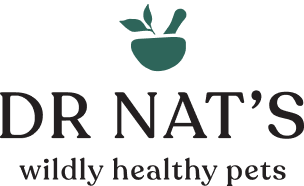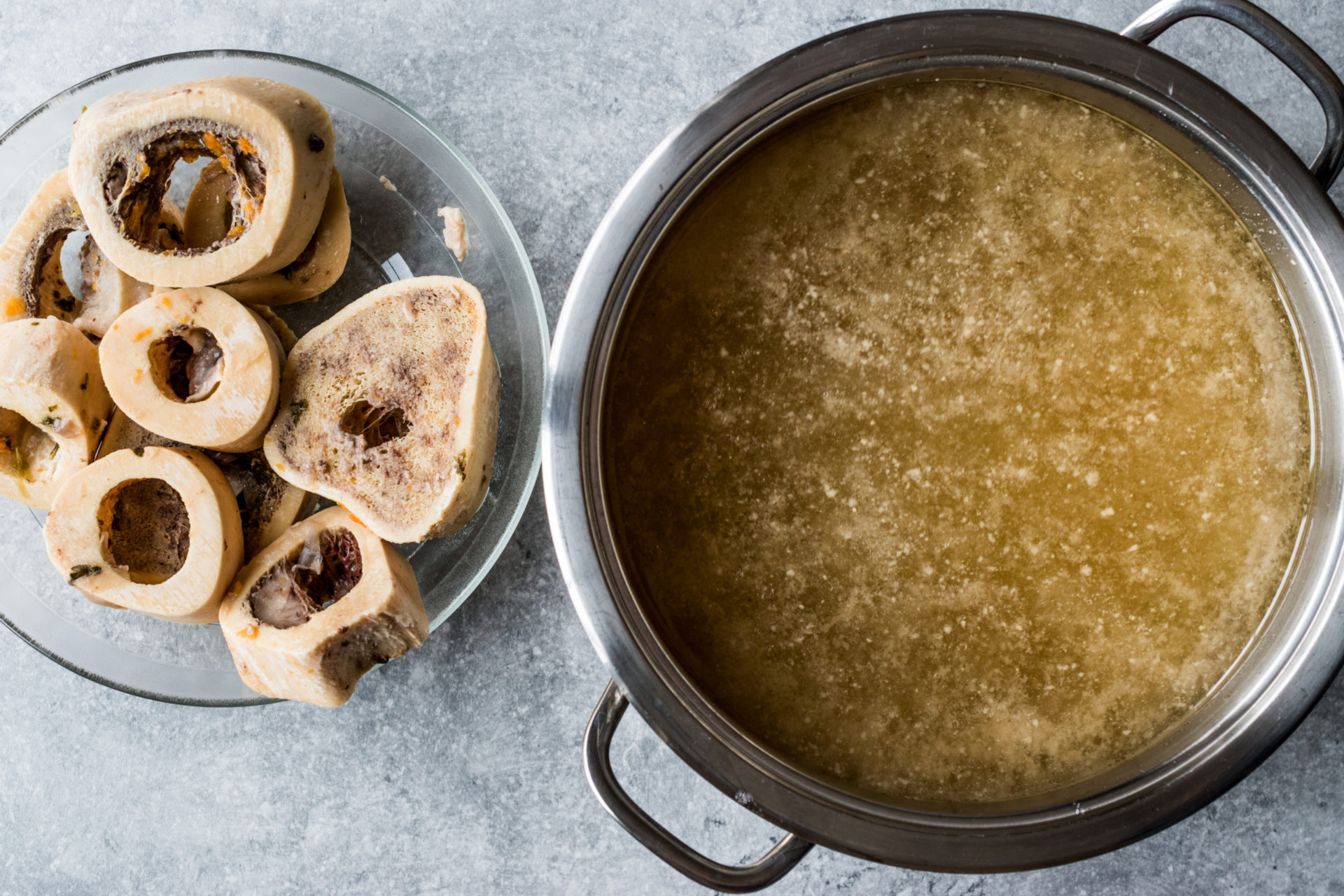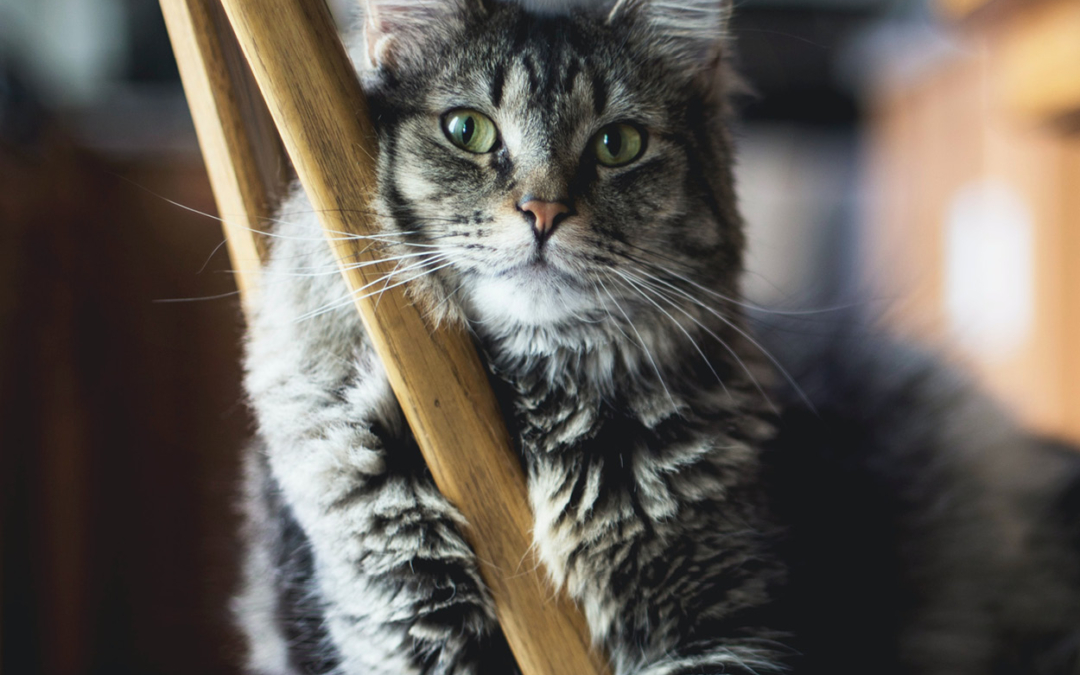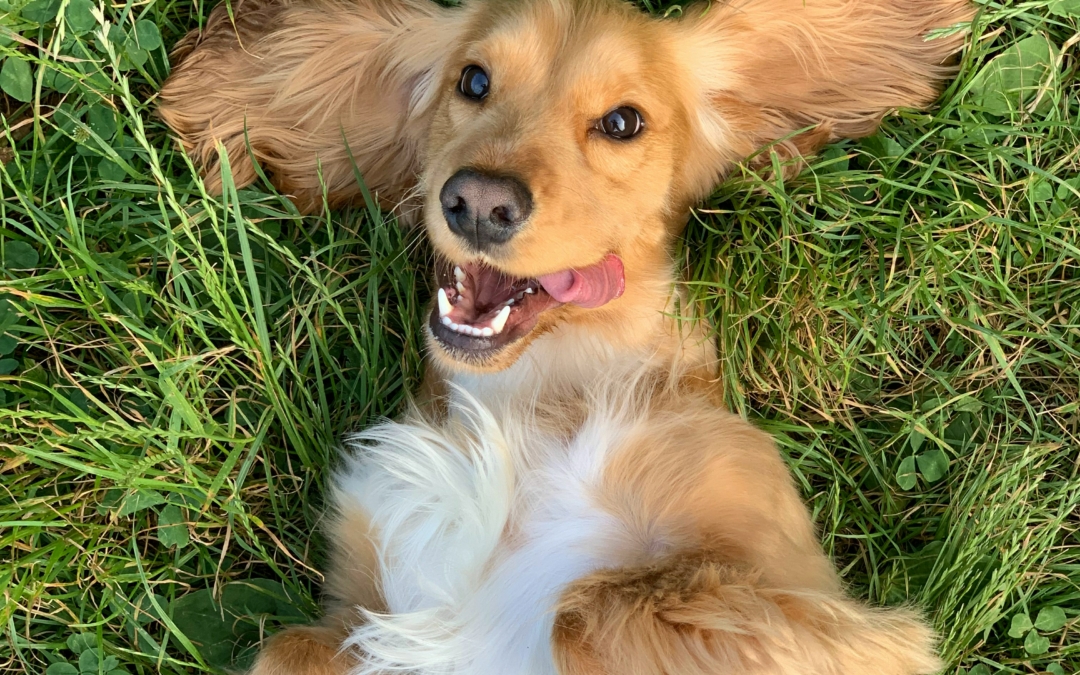Bone broth is full of minerals and gut-nourishing nutrients including collagen, gelatin, proline and glutamine.1 It aids in healing leaky gut and digestive issues.2 It is excellent for times of gut upset in both dogs and cats. Using it instead of a meal allows the digestive organs to rest while providing nourishing nutrients to heal and keep the body hydrated. It also aids in detoxing the liver due to the high levels of glycine.3 Plus is it great for joint health promoting collagen growth as it contains nutrients such as glucosamine, chondroitin and hyaluronic acid.3
For health and longevity, I recommend that adult dogs are fasted weekly for 24 hours using bone broth diluted 50% with warm water. It is recommended that puppies and cats are only fasted for 12 hours. Adult dogs more than 5kgs can be safely fasted for much longer. Up to 72hrs.
Fasting is a natural phenomenon for a carnivore that hunts as they would not normally find prey every day. Their digestive system thrives on having a rest and getting a chance to detox. This is especially true with the amount of chemicals pets are bombarded with in this current era. Detoxing is beneficial to so many health ailments from topical skin itch to deep-seated diseases such as cancer.
CARE using bone broth WITH meals as due to its highly concentrated nutrient density it can overload sensitive patients and cause diarrhoea or potentially even pancreatitis. If your pet is prone to pancreatitis only feed bone broth as a liquid fast (without a meal) and dilute it with water with a ratio of 1 part bone broth to 3 parts water.
How to make bone broth
Ingredients:
- Filtered water
- ¼ cup of apple cider vinegar (or either of Dr Nat’s tonics; click here to check them out)
- 1 large bag of organic bones (ideally chicken frames, wings and legs or a mix of knuckle, marrow and meaty bones)
- You can get fancy and add veggies such as celery and carrots (no garlic or onions or salt). However, I just keep it simple.
1. Add all ingredients to a slow cooker or large pot. I fill it nearly to the top with filtered water.
2. Brew on low for 24hrs (chicken), 48hrs (lamb) 72hrs (beef) for best results. Tip – I put my slow cooker outside on the veranda as it can be a little smelly. Make sure to keep an eye on the water level if brewing for 48hrs or more.
3. Remove the bones
4. Place in the fridge to cool for a few hours or over night.
5. Remove the fat off the top (do NOT feed this to your dog or cat – this is called lard and can be used to cook with for human consumption).
6. Decant into appropriate size containers or jars and refrigerate or freeze for later use.
How much to feed
Feed approximately 60ml of bone broth per 5 kg diluted with equal parts water once a week as a meal replacement to allow for fasting.
When to feed
Ideally, give bone broth instead of other food for each meal during a fast period. If your pet has had digestive upset then use the bone broth to do a liquid fast for 12hrs (puppies and cats) and a minimum of 24hrs for an adult dog. This can continue for up to 72hrs in adult dogs. I also recommend fasting before changing dogs and cats on to a raw diet. Click for more info on raw diets and changing to a raw diet.
Dr. Nat’s Disclaimer: This information is for educational purposes only. Please consult the advice of your veterinarian for specific questions about your pet. Consult’s are available with Dr. Nat here.
Sources:
1. Sheedy, Talita “Baby, it’s only natural” Australia: Talita Sheedy & In House Publishing, 2018. 7. Print.
2. Changing Habits recipe book, Mooloolaba: Changing Habits Pty Ltd; 2016. 8. Print
